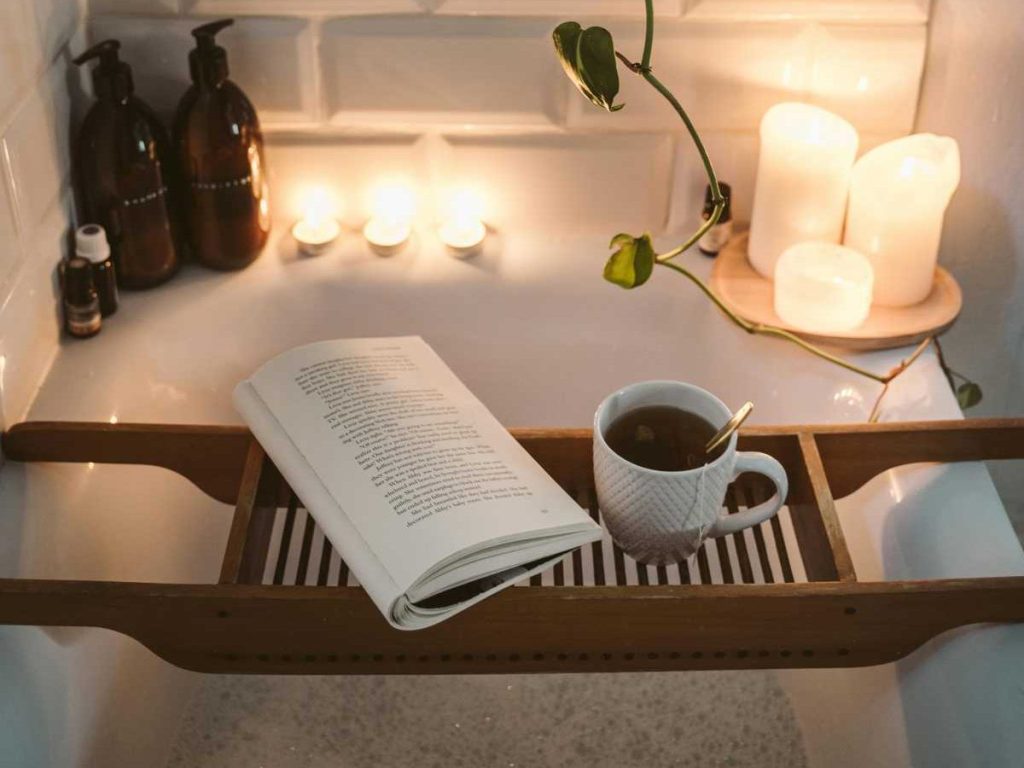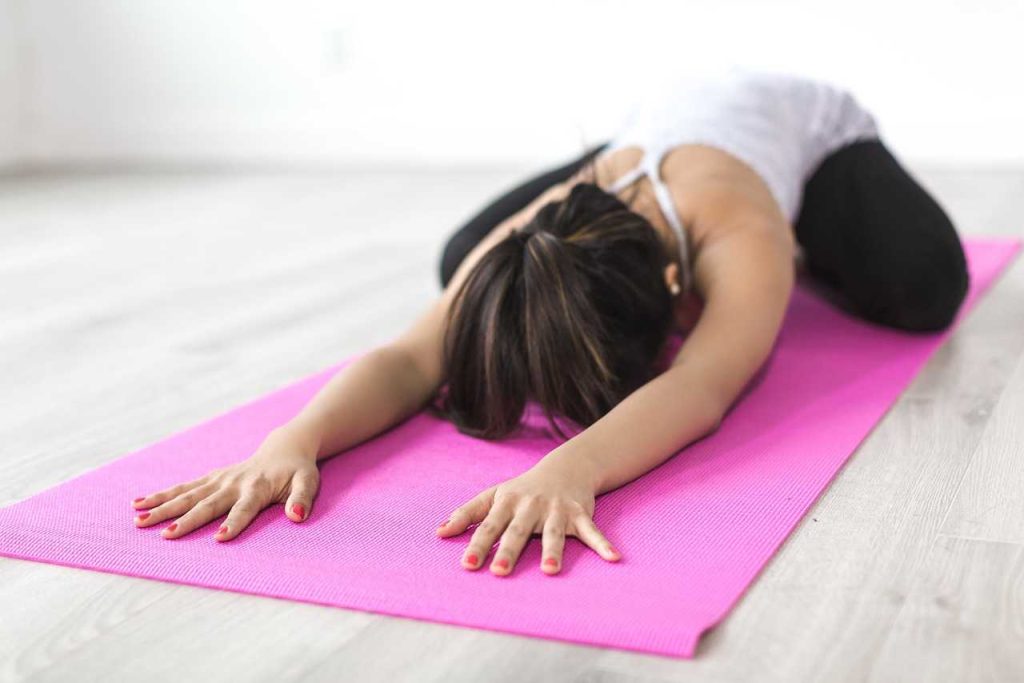In today’s fast-paced world, taking time for self-care is essential for maintaining mental, physical, and emotional well-being. However, self-care doesn’t have to be a luxury reserved for spa days or expensive getaways. With a little creativity, you can create a fulfilling self-care routine that rejuvenates you—without straining your budget. This guide covers accessible, budget-friendly ways to indulge in self-care and restore your balance without breaking the bank.

1. Create a Home Spa Experience
Who says you need to book an expensive spa day to unwind? Transform your bathroom into a spa-like oasis with just a few household items.
DIY Ideas:
- Epsom Salt Bath: Add a cup of Epsom salts and a few drops of your favorite essential oil (lavender or eucalyptus works wonders) to warm bath water. Epsom salts are rich in magnesium and help relax sore muscles.
- Face Masks from the Pantry: Use ingredients like honey, yogurt, and oats to make simple, soothing face masks. For instance, mix two tablespoons of yogurt with one tablespoon of honey for a hydrating and brightening mask.
- Steam Facial: Boil water and add herbal tea bags (like chamomile or green tea) or essential oils, then lean over the bowl and cover your head with a towel for a refreshing facial steam.
2. Practice Mindfulness and Meditation for Free
Mindfulness and meditation are powerful self-care tools that require nothing more than a quiet space. These practices can significantly reduce stress, improve mental clarity, and enhance emotional resilience—all for free.
Getting Started:
- Guided Meditations: Use free apps like Insight Timer, Smiling Mind, or YouTube to find guided meditations suited to beginners and seasoned practitioners alike.
- Deep Breathing: Practice deep breathing exercises to calm the mind and center yourself. Try the 4-7-8 technique: breathe in for four seconds, hold for seven, and exhale for eight.
- Gratitude Journaling: Spend a few minutes each day writing down three things you’re grateful for. Gratitude exercises can improve mood and provide perspective.
3. Get Moving with At-Home Workouts

Exercise is essential for overall wellness, but gym memberships can be pricey. Fortunately, there are countless free ways to stay active at home.
Ideas for Staying Active:
- YouTube Workouts: Channels like Yoga with Adriene, POPSUGAR Fitness, and Blogilates offer high-quality, free workout videos, ranging from yoga and Pilates to strength training and dance.
- Walking and Hiking: If you prefer the outdoors, go for a brisk walk or explore local trails. Walking is a low-impact, cost-free way to boost your physical health and get fresh air.
- Bodyweight Exercises: Create a quick circuit workout with exercises like squats, push-ups, and lunges. These exercises require no equipment and can be done anywhere.
4. Use Free or Low-Cost Digital Resources for Self-Care
In the digital age, there’s a wealth of free and budget-friendly resources to help you unwind and grow. Many websites, apps, and online courses offer tools for personal development and relaxation.
Best Free Resources:
- Library E-Books and Audiobooks: Many public libraries offer free access to e-books and audiobooks through apps like OverDrive or Libby.
- Free Online Courses: Websites like Coursera and edX offer free courses in subjects like happiness, stress management, and positive psychology.
- Podcasts for Relaxation: Listen to podcasts on meditation, relaxation, and self-improvement, such as “Calm Pills” or “The Mindful Kind.”
5. Tap into Nature for a Free Reset
Nature is one of the most powerful (and free!) resources for self-care. Spending time outdoors can improve mood, increase creativity, and reduce stress.

Outdoor Self-Care Activities:
- Picnic in the Park: Pack a simple meal or snack, grab a blanket, and head to your local park for a picnic. The change of scenery and time spent outdoors can work wonders.
- Gardening: If you have access to a garden or a few potted plants, spend time nurturing them. Gardening can be deeply calming and rewarding.
- Nature Walks: Take a stroll in a nearby nature reserve or forest. Focus on the sights, sounds, and smells around you to practice mindfulness.
6. Embrace DIY Beauty Treatments
Expensive beauty products aren’t necessary for effective self-care. Homemade beauty treatments can be just as beneficial and are easy on your wallet.
Simple DIY Beauty Ideas:
- Hair Masks: Create a nourishing hair mask with coconut oil or olive oil. Massage a small amount into your hair, leave it for 20-30 minutes, then wash it out.
- Lip Scrub: Mix a teaspoon of sugar with a drop of honey or olive oil for a simple, exfoliating lip scrub.
- Body Scrub: Combine sugar or coffee grounds with olive oil or coconut oil for a rejuvenating body scrub.
7. Declutter and Organize Your Space
Decluttering can be a surprisingly powerful form of self-care. Creating an organized and tidy space can reduce stress and make your environment feel more peaceful.
Tips for Effective Decluttering:
- Set a Timer: To avoid feeling overwhelmed, set a 15-30 minute timer and focus on one area, like a closet or drawer.
- Sort Items into Categories: Go through your belongings and decide what to keep, donate, or toss. Try to keep only items that serve a purpose or bring you joy.
- Clean as You Go: Wipe down surfaces and vacuum as you organize. A clean, organized space can help clear your mind and boost productivity.
8. Practice Creative Expression as Therapy

Creativity can be incredibly therapeutic, helping you process emotions and reduce stress. Artistic expression is also an enjoyable, low-cost way to spend time with yourself.
Creative Self-Care Ideas:
- Journaling: Write about your day, your dreams, or any thoughts you want to explore. Journaling helps organize thoughts and can be cathartic.
- Drawing or Painting: Even if you’re not an artist, drawing or painting can be a fun, meditative way to express yourself.
- DIY Crafts: Try simple crafts like knitting, making jewelry, or scrapbooking. Crafting can be relaxing, and you’ll have a tangible item as a reminder of your creativity.
9. Nurture Your Mind with Reading or Learning
Learning something new or diving into a good book is a wonderful way to care for yourself mentally. Reading or taking up a new hobby can provide a much-needed mental break.
Affordable Ways to Learn and Grow:
- Read Books You Already Own: Revisit books you already have on your shelves, or swap with friends to discover new reads.
- Watch Documentaries: Use free streaming services or YouTube to watch documentaries on topics you’re interested in, from nature to history.
- Start a New Hobby: Learning a skill like cooking, drawing, or photography can be very fulfilling. Many tutorials and beginner’s courses are available online for free.
10. Build a Nighttime Ritual to Unwind
Creating a calming nighttime routine can help you unwind, improve your sleep, and prepare for the day ahead. It doesn’t require any fancy products or services—just a few relaxing habits.
Ideas for a Soothing Bedtime Routine:
- Unplug from Screens: Turn off electronic devices at least an hour before bed. The blue light from screens can interfere with your sleep quality.
- Practice Relaxing Stretches: Gentle stretching before bed can release tension and prepare your body for sleep.
- Read or Listen to Soft Music: Instead of scrolling through your phone, read a book or listen to relaxing music or an audiobook.
11. Practice Gratitude as Self-Care
Gratitude is a powerful, cost-free practice that can shift your perspective and improve your mood. Regularly practicing gratitude helps you focus on the positive and strengthens emotional resilience.
How to Practice Gratitude:
- Gratitude Journal: Write down three things you’re grateful for each day. It can be something small like a warm cup of tea or something big like a supportive friend.
- Express Appreciation to Others: Send a heartfelt text or handwritten note to someone you appreciate. Letting others know they’re valued can strengthen relationships and lift your mood.
- Reflect on Positive Moments: Before bed, spend a few moments recalling the day’s highlights, no matter how small. This habit can help end your day on a positive note.
12. Use Free Self-Care Challenges to Stay Motivated
Joining a self-care challenge can add excitement to your routine and help you stay committed to taking care of yourself. Many free challenges are available online, or you can create your own.
Examples of Self-Care Challenges:
- 30-Day Self-Care Challenge: Each day, set a small, achievable goal, like meditating for five minutes or trying a new recipe.
- Mindfulness Challenge: Practice a different mindfulness activity each day, like deep breathing, a short meditation, or mindful walking.
- Gratitude Challenge: For a week or month, write down something you’re grateful for each day.
Conclusion: Self-Care Without the Expense
Self-care is a necessity, not a luxury. By adopting affordable self-care practices, you can nurture your mind, body, and soul without spending a fortune. The most important part of self-care is consistency, and with these budget-friendly strategies, you can incorporate self-care into your life regularly. Start small, get creative, and remember that taking time for yourself is a worthwhile investment.

